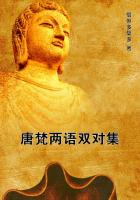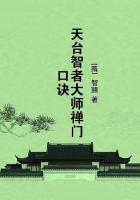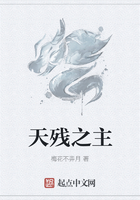The audience politely endured Jessie. That night a woman sang in the same tent "The Last Rose of Summer." She had never been to Berlin, but she had lived that song. She didn't dress the notes half so beautifully as Jessie did, but she sang it with the tremendous feeling it demands. The audience went wild. It was a case of Gussie and Bill Whackem.
All this was gall and wormwood to Jessie. "Child," I said to her, "this is the best singing lesson you have ever had. Your study is all right and you have a better voice than that woman, but you cannot sing "The Last Rose of Summer" yet, for you do not know very much about the first rose of summer. And really, I hope you'll never know the ache and disappointment you must know before you can sing that song, for it is the sob of a broken-hearted woman. Learn to sing the songs you have lived."
Why do singers try to execute songs beyond the horizon of their lives? That is why they "execute" them.
The Success of a Song-Writer The guest of honor at a dinner in a Chicago club was a woman who is one of the widely known song-writers of this land. As I had the good fortune to be sitting at table with her I wanted to ask her, "How did you get your songs known? How did you know what kind of songs the people want to sing?"
But in the hour she talked with her friends around the table I found the answer to every question. "Isn't it good to be here?
Isn't it great to have friends and a fine home and money?" she said. "I have had such a struggle in my life. I have lived on one meal a day and didn't know where the next meal was coming from. I know what it is to be left alone in the world upon my own resources. I have had years of struggle. I have been sick and discouraged and down and out. It was in my little back-room, the only home I had, that I began to write songs. I wrote them for my own relief. I was writing my own life, just what was in my own heart and what the struggles were teaching me. No one is more surprised and grateful that the world seems to love my songs and asks for more of them."
The woman was Carrie Jacobs-Bond, who wrote "The Perfect Day,"
"Just a Wearyin' for You," "His Lullaby" and many more of those ****** little songs so full of the pathos and philosophy of life that they tug at your heart and moisten your eyes.
Anybody could write those songs--just a few ****** words and notes.
No. Books of theory and harmony and expression only teach us how to write the words and where to place the notes. These are not the song, but only the skeleton into which our own life must breathe the life of the song.
The woman who sat there clad in black, with her sweet, expressive face crowned with silvery hair, had learned to write her songs in the University of Hard Knocks. She here became the song philosopher she is today. Her defeats were her victories. If Carrie Jacobs-Bond had never struggled with discouragement, sickness, poverty and loneliness, she never would have been able to write the songs that appeal to the multitudes who have the same battles.
The popular song is the song that best voices what is in the popular heart. And while we have a continual inundation of popular songs that are trashy and voice the tawdriest human impulses, yet it is a tribute to the good elements in humanity that the wholesome, uplifting sentiments in Carrie Jacobs-Bond's songs continue to hold their popularity.
Theory and Practice My friends, I am not arguing that you and I must drink the dregs of defeat, or that our lives must fill up with poverty or sorrow, or become wrecks. But I am insisting upon what I see written all around me in the affairs of everyday life, that none of us will ever know real success in any line of human endeavor until that success flows from the fullness of our experience just as the songs came from the life of Carrie Jacobs-Bond.
The world is full of theorists, dreamers, uplifters, reformers, who have worthy visions but are not able to translate them into practical realities. They go around with their heads in the clouds, looking upward, and half the time their feet are in the flower-beds or trampling upon their fellow men they dream of helping. Their ideas must be forged into usefulness available for this day upon the anvil of experience.














